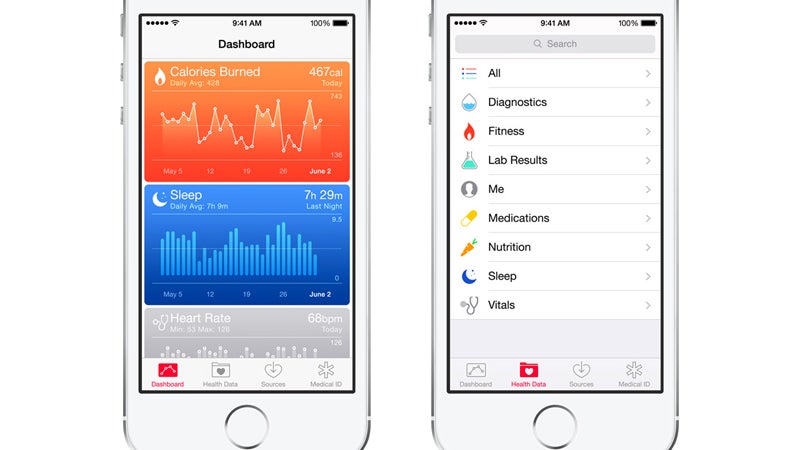Everything you ever wanted to know about your health and fitness is coming soon to an iPhone near you. Or, more specifically, to an app named Health that runs on Apple’s new mobile operating system, iOS 8.
That’s today’s big news out of San Francisco, where Apple announced its foray into health and fitness tracking at the company’s annual World Wide Developer’s Conference.
As , Healthkit is “the company’s first real big foray into health and fitness tracking, and Health [is] an app for viewing all that info…the new Health app will combine data from various different health and fitness devices and apps, and make them accessible all in one place.” For example, the app will combine sleep, nutrition, activity, weight, and heart-rate data in tabs on a single screen.
With Healthkit, Apple is not only getting into the fitness-tracking game, it’s also making a push to modernize and mobilize healthcare. As ,
Mayo Clinic, a Minnesota non-profit, is already working with Apple on making the software work best for both doctors and patients. In the examples shown today at in San Francisco, Health advised patients of wellness plans set by their doctors and enabled a futuristic approach to healthcare; where doctors and patients interact constantly, in real-time, at very least on a data level.
Apple isn’t the first company to try to consolidate personal health and fitness info in one place. Microsoft launched web-based HealthVault in 2007, and Google followed with in 2008. HealthVault still exists, though Microsoft has on the number of active users. Google shuttered its service in 2012, citing a lack of participation. As former manager of Google Health, Adam Bosworth, told the New York Times, “the service could not overcome the obstacle of requiring people to laboriously put in their own data.”
That’s where Apple Health is likely to succeed while these early services did not. It seems Apple’s app will do all of the work of integrating records and information from fitness-tracking devices, like Apple’s rumored iWatch, as well as doctors. That may make it an easy technology to adopt.
the highly-anticipated iWatch itself—a “”—could someday have self-monitoring capabilities beyond those of the popular FitBit or similar wristbands. Think: hydration, oxygen saturation, and blood sugar tracking. Apple hired several health and fitness experts in the past year, fueling those rumors, though the company has yet to make any official iWatch announcements.
A in 2009 suggests wearables aren’t the only devices that will track health data. Future iPhones may have leads embedded in them that allow the phone itself to track cardiac data, giving users easy access to heart info as well.
For now, we know the Health app is coming. Amid the rest of the rumors, one thing is certain: this year is shaping up to be a big one for health and fitness.


